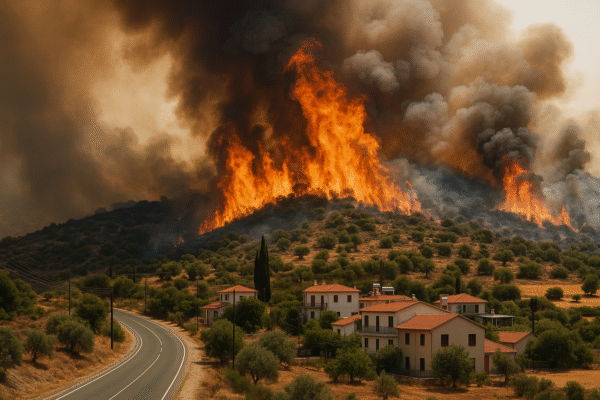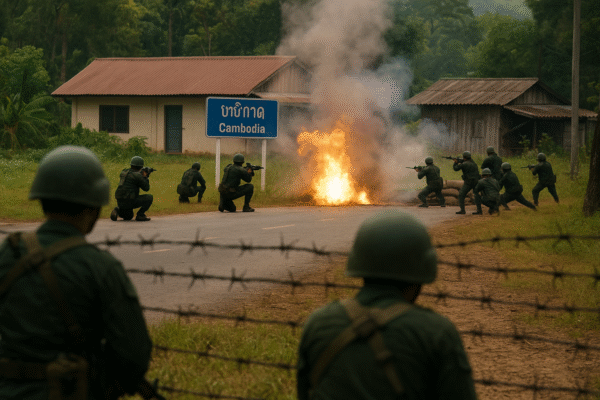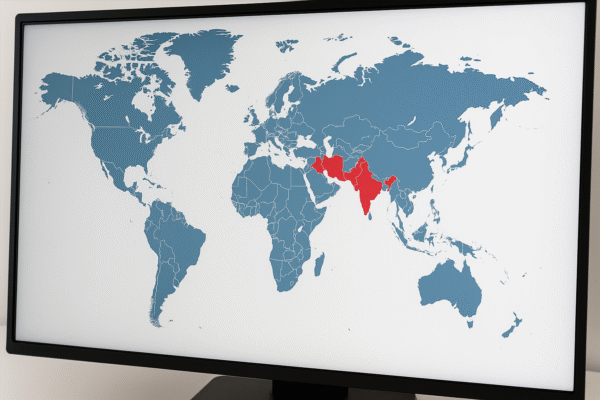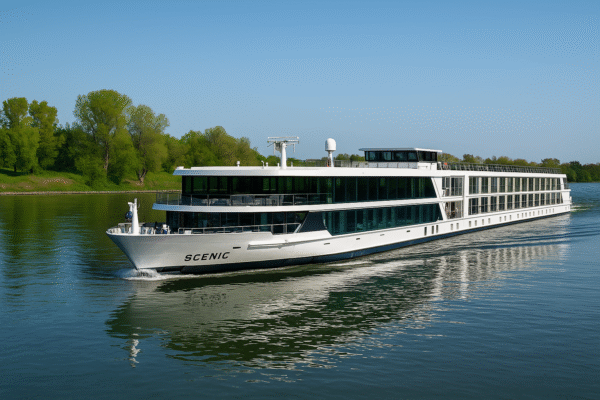A devastating wildfire outbreak north of Limassol is sweeping across southern Cyprus, forcing evacuations from more than 15 villages and claiming two lives. Triggered by scorching temperatures peaking at 44°C (111.2°F), the fires are among the most severe the Mediterranean island has experienced in recent memory. While firefighting efforts continue, the situation remains volatile, raising safety concerns for tourists and affecting travel plans during the island’s peak summer season.
Raging Wildfires and Emergency Response
The blaze erupted on Wednesday, fanned by dry conditions, strong winds, and rugged terrain. Despite the deployment of hundreds of local firefighters, dozens of fire trucks, and multiple aircraft—including firefighting planes from Spain and Jordan—the flames have spread rapidly.
The European Union has activated its Civil Protection Mechanism, while the United Kingdom has extended support through its military bases stationed on the island. Cyprus President Nikos Christodoulides confirmed that “all available national and international resources have been mobilized.” As of Thursday morning, firefighting operations were still underway, with additional aid anticipated from EU partners.
Evacuations and Casualties in Rural Communities
Authorities have confirmed two fatalities after a vehicle was found engulfed by flames, while 10 people have sustained injuries. Villages such as Lofou, Vasa, and Agios Ambrosios have been entirely evacuated. Lofou, located just 26 kilometers north of Limassol, was particularly affected, with several residents trapped until emergency services could reach them.
Over 300 residents have been relocated to temporary shelters, with special priority given to vulnerable groups including the elderly and those with medical conditions. Civil protection services have urged both residents and tourists to comply with evacuation orders and avoid all wildfire zones.
Limassol Tourism and Infrastructure Hit
Limassol, a popular coastal destination known for its beaches, archaeological sites like Kourion, and vibrant summer festivals, has been placed on high alert. Although the fire has not reached the coast, thick smoke, road closures, and power outages are already affecting travel and hospitality operations inland.
According to the Cyprus Deputy Ministry of Tourism, accommodations and tourism services in the Limassol district are closely monitoring the situation. Some rural hotels and eco-lodges in the foothills of the Troodos Mountains have been temporarily closed, and hiking tours have been suspended. Travelers with bookings in affected regions are urged to contact their hotels and tour operators for updates.
Power disruptions have also been reported, with 15 villages losing electricity due to fire damage to the regional grid. Emergency crews are working with the Cyprus Electricity Authority to restore services where safe.
Heatwave Intensifies Fire Risk and Travel Disruption
The wildfire comes amid one of the hottest summers in recent history, as Cyprus faces an extended heatwave. The Cyprus Department of Meteorology has maintained an amber alert for high temperatures since early July, warning of heat-related health risks and elevated fire danger.
Meteorologists have forecast continued high temperatures with minimal rainfall in the coming days. This has prompted travel advisories for those planning to visit nature reserves or rural regions, especially the Troodos Mountains. Outdoor tourism activities such as mountain biking, vineyard tours, and nature walks have been suspended until further notice.
Tourism Safety and Travel Guidance
The Cyprus Ministry of Interior, in coordination with the Cyprus Police and Civil Defence, is issuing real-time updates through official channels. Tourists are advised to:
- Monitor updates from the official tourism site of Cyprus.
- Check with accommodations and tour operators before traveling to rural or mountainous areas.
- Avoid all non-essential travel to wildfire-affected zones.
- Stay hydrated and indoors during peak heat hours (11 a.m. – 4 p.m.).
- Follow instructions from local authorities and emergency responders.
A Blow to Cyprus’s Summer Tourism Season
Summer tourism is vital to Cyprus’s economy, particularly in areas like Limassol and Paphos that draw thousands of European visitors each year. In 2024, over 3.2 million tourists visited the island, contributing significantly to GDP. This year, the wildfire’s timing during the peak season could lead to hotel cancellations, flight changes, and a drop in local tourism revenue.
The Cyprus Chamber of Commerce and Industry has issued a preliminary economic impact estimate suggesting losses in the millions if the fires continue into early August. Small and family-run businesses in affected areas are especially vulnerable, as many depend solely on seasonal income.
Looking Ahead: Recovery and Preparedness
As emergency crews continue to battle the blaze, Cyprus is also beginning to assess long-term recovery and forest management plans. President Christodoulides has called for increased investment in wildfire prevention, including drone surveillance, early detection systems, and expanded firebreak zones.
Meanwhile, international aid continues to arrive, and Cyprus remains open to tourists in unaffected regions such as Larnaca, Paphos, Ayia Napa, and Nicosia. The Tourism Ministry has stressed that “Cyprus is still a welcoming destination, but caution and flexibility are needed.”
Conclusion
The unfolding wildfire crisis in Cyprus is a stark reminder of the growing impact of climate change on global travel. Tourists planning to visit the island in the coming weeks should stay informed, prioritize safety, and be prepared for last-minute itinerary changes. With international assistance and strong local coordination, Cyprus is striving to protect both its people and its tourism lifeline from further damage.
For more travel news like this, keep reading Global Travel Wire





















